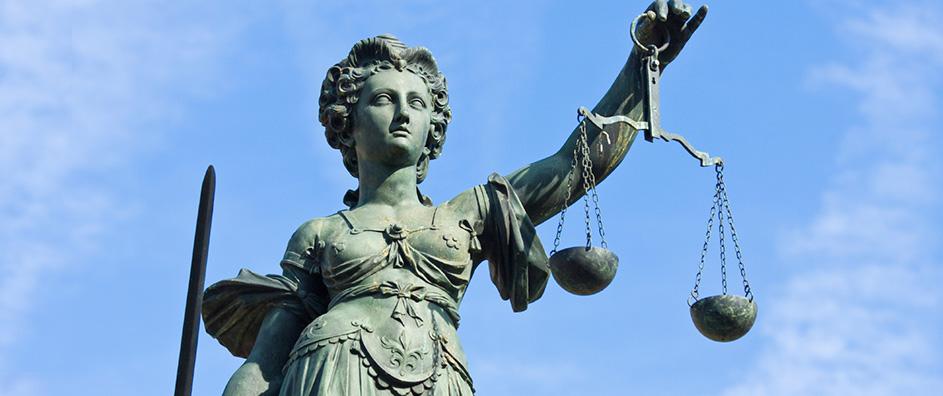Throughout history, the interplay between death and justice has captivated human thought and inquiry, challenging the very essence of morality, ethics, and the human experience. In contemplating the Bahá’í teachings surrounding these profound subjects, one observes a subtle yet profound synthesis that offers clarity on how humanity can navigate the often turbulent waters of mortality and justice. This exploration will delve into the Bahá’í perspective, shedding light on fundamental tenets that guide adherents in comprehending the significance of death and the intricacies of justice.
At the core of Bahá’í belief is the understanding of death as a critical juncture rather than an abrupt finale. This notion contrasts sharply with the prevailing existential dread that characterizes many worldview interpretations. Bahá’ís perceive death not as an end, but rather as a transition to a new realm of existence; it is this theological underpinning that renders the subject of death less morbid and more a catalyst for profound personal development and societal reform. This perspective cultivates an ethos whereby individuals are encouraged to reflect upon their actions with an acute awareness of the fleeting nature of life, leading to a heightened sense of accountability and purpose.
The spiritually informed gaze on death gives rise to an essential moral imperative: the quest for justice. In Bahá’í teachings, justice is not merely a societal construct; it is exalted as an expression of divine will. The emphasis placed on justice necessitates a comprehensive understanding of its multidimensional dimensions, which encompass legal adjudication, social equity, and even spiritual rectitude. Bahá’ís are compelled to reflect on the implications of their choices, recognizing that individual actions reverberate beyond the temporal sphere, impacting the collective destiny of humanity.
A pivotal aspect of Bahá’í doctrine is the concept of the oneness of humanity. Under this principle, the fabric of justice is interwoven with the interconnectedness of all people. Justice in the Bahá’í context transcends the mere punitive measures inherent in traditional legal systems. Instead, it embodies a restorative ethic that seeks to heal and uplift. Such an approach necessitates a discerning examination of the underlying conditions that give rise to injustice: poverty, discrimination, and ignorance. The Bahá’í faith advocates tirelessly for social transformation, aspiring to eradicate systemic injustices that undermine human dignity.
Moreover, the concept of justice within the Bahá’í framework extends to interpersonal relationships and the microcosm of daily life. The Bahá’í teachings promote the idea that justice begins within oneself. Self-reflection and honesty become essential tools for navigating the realm of human relationships, encouraging individuals to act justly not only in their dealings with others but also in their stewardship over their own thoughts and emotions. This internal alignment fosters an environment in which mutual respect and understanding can flourish, ultimately contributing to more peaceful and just communities.
Interspersed within this discourse on death and justice is the recognition of moral agency. Bahá’ís are taught that each individual possesses the capability and responsibility to discern truth and act upon it. This moral agency is especially crucial when addressing issues related to justice. In a world rife with inequality and injustice, Bahá’í teachings underscore the importance of standing up against oppression while remaining anchored in principles of forgiveness and compassion. Such a balance is vital; without it, the quest for justice risks devolving into vengeance, which serves only to perpetuate the cycle of suffering.
The Bahá’í response to the dilemmas posed by death and justice ultimately elevates both subjects to a spiritual realm, profoundly impacting how adherents perceive their lives and responsibilities. The realization that earthly existence is transient fosters a sense of urgency that compels individuals to strive for justice—not only for themselves but for the entirety of humanity. This approach fosters a culture of empathy, resilience, and sustained commitment to both personal and collective progress.
Furthermore, the Bahá’í writings illuminate how the convergence of death and justice offers opportunities for spiritual awakening. Adversity, especially in the form of loss, often serves as a crucible for personal growth. Individuals are encouraged to seek not only to understand their grief but to transform it into a driving force for advocacy and positive change. This transformative process allows adherents to honor those who have passed while simultaneously contributing to a more just and equitable society.
As we culminate this exploration of Bahá’í teachings in the context of death and justice, it becomes evident that these themes are inextricably linked, serving as guiding principles in the pursuit of a harmonious existence. The synthesis of the acknowledgement of mortality with the quest for justice urges individuals to reflect deeply on their responsibilities and the legacy they leave behind. By contemplating these interrelated concepts, Bahá’ís are inspired to forge a world in which justice prevails and where the understanding of death as a continuation—rather than an end—propels humanity toward a brighter, more equitable future.
